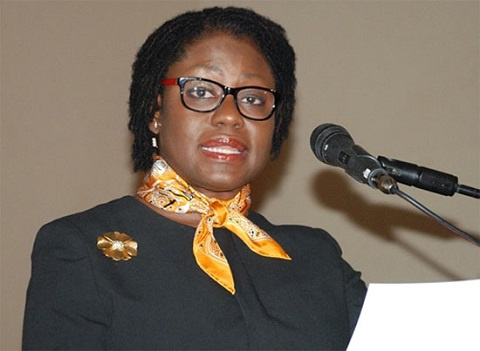The Second Deputy Governor of the Bank of Ghana, Mrs. Elsie Addo Awadzi gave some insights into what Bank of Ghana expects from the Savings and Loans sector in an interview released on the 9th of October 2020.
In the interview, Mrs. Elsie Addo Awadzi stated that the Bank of Ghana expects the Savings and Loans sector to review their business models to make sure that they are in line with the public policy objective of fostering financial inclusion by providing financial services for households and small-scale entities who may not have access to banking services.
“We expect institutions in the Savings and Loans sector to reassess their business models to ensure that they are aligned with the public policy objective for which the sector was created, which is to promote financial inclusion through suitable financial services for small businesses and households who otherwise do not have access to banking services”.
The Second Deputy Governor added that there are vast prospects for growth in the Savings and Loans Industry because there are Ghanaians who up to date do not have savings accounts and lack the necessary credit for their economic pursuits.
“There are still many Ghanaians with no access to savings accounts and much-needed credit to support their economic activities. This presents enormous opportunities that the sector can pursue in order to grow”.
Mrs. Elsie Addo Awadzi further intimated that the Bank of Ghana expects the Savings and Loans industry to carefully handle their risks bearing in mind the amount of their capital base and their role to protect depositor’s interest.
“We also expect them to manage their risks prudently considering the extent of their capital base, and to safeguard the interest of their depositors”.
Again, the Second Deputy Governor said that Savings and Loans companies are expected to select directors who have a full understanding of their fiduciary role as directors and are well aware of the legal penalties associated with their failure to discharge those duties accordingly.
“We expect shareholders of Savings and Loans companies to appoint directors who fully understand their statutory duties as well as the legal consequences of failing to discharge those duties. Savings and Loans companies must also invest in the right caliber of managers to manage their affairs prudently”.

Touching on the subject of regulatory reliefs provided by the Bank of Ghana to the Savings and Loans sector, the second deputy governor opined that aside from the reduction of the monetary policy rate by 150 basis points, the Bank had provided numerous policy and regulatory reliefs for Specialised Deposit-taking Institutions (SDIs) since March of this year when the COVID-19 pandemic set in.
“Since March 2020, we have provided several policy and regulatory reliefs for SDIs in addition to our monetary policy rate reduction of one hundred and fifty basis points that allowed them to reduce their lending rates for the benefit of their customers. Some of these reliefs include a reduction in the level of provisioning required for loans in the “Other Loans Exceptionally Mentioned” category (i.e. loans past due by 30 days but below 90 days past due) from 10% to 5% to ease the burden of provisioning on SDIs”.
“In May 2020, we also reduced the 8% primary reserve ratio for Savings and Loans companies and Finance House companies to 6%, which we estimated would release additional liquidity of GHS 73.36 million for these institutions”.
Mrs. Elsie Addo Awadzi also added that the Bank of Ghana is currently putting in place measures to make available funds to support Savings and Loans as well as Finance House’s having challenges with liquidity.
“We also committed to putting in place a framework to activate section 46A of the Bank of Ghana Act 2002 (Act 612) as amended, to provide liquidity support to Savings and Loans and Finance House companies facing temporary liquidity challenges, based on strict compliance with eligibility criteria and conditions established by law”.
The Second Deputy Governor went on to say that directives have been given to SDIs on ensuring that there is prudent accounting of loans given to customers.
“We have also issued guidance to SDIs on the accounting and prudential treatment of loans restructured for customers who are unable to service their loans as a result of the impact of the COVID-19 pandemic”.
In concluding on the topical issue, Mrs. Elsie Addo Awadzi said that “the Bank of Ghana believes that these measures will go a long way to release liquidity to the SDI sector to enable them to support their customers and continue lending to viable micro and small businesses. No one really knows how this pandemic will continue to evolve and how it will ultimately impact our economy, so it is premature to know whether additional policy and regulatory reliefs for the sector will be needed. We will continue to monitor developments in the sector and will respond with additional measures if needed”.





















